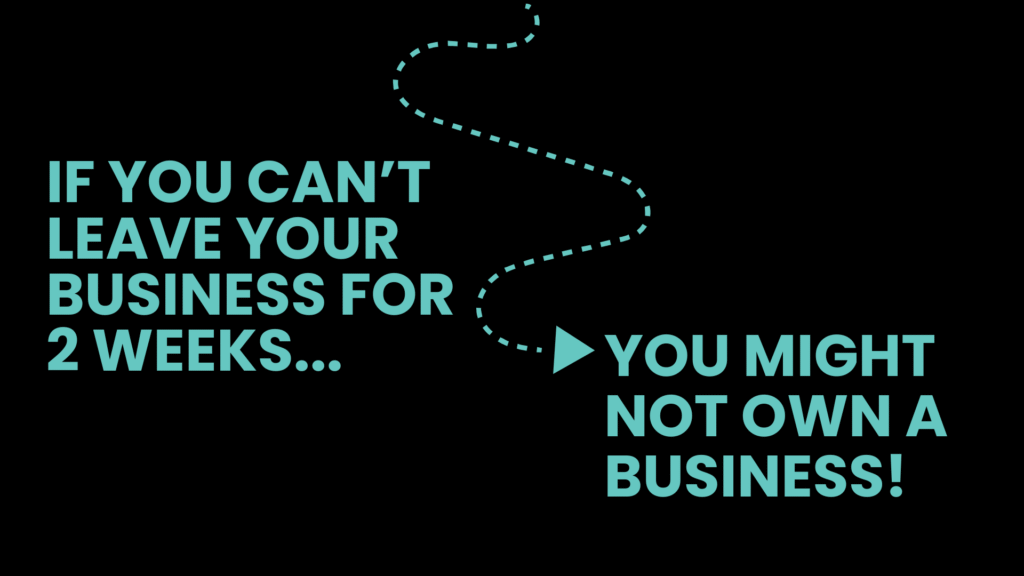If you’ve spent any time in the world of Agile and Business Agility, you know it’s about more than just frameworks and sticky notes. It’s about building systems that adapt, learn, and thrive even in your absence. But for many leaders, those championing Agile transformations or in the weeds with the work, the idea of stepping away for a two-week break still feels like a distant dream. If the thought of your business running smoothly without you sends a spike of anxiety through your sprint planning, this one’s for you.

I call it the Two-Week Dream. The ability to completely step away from leading a team or organization. It isn’t just a test of your business systems; it’s a test of the leadership in the space. It’s a signal that your teams are empowered, your culture is strong, and your organization is built to last. If you’re ready to level up your leadership, it’s time to consider what it really means to lead an Agile business.
It’s a test of the leadership in the space. It’s a signal that your teams are empowered, your culture is strong, and your organization is built to last.
In the world of agile business, we talk a lot about resilience, adaptability, and the power of self-organizing teams. But what if the ultimate test of a truly agile organization isn’t just delivering value quickly or responding to change, but being able to thrive without you? Imagine a business that not only survives your absence but actually evolves in it. A system so robust that it not only endures the unexpected but also learns from it. This isn’t a far-off dream. It’s a tangible, achievable reality for leaders willing to rethink their role and trust their teams. Welcome to the Two-Week Dream. The audacious idea that your business deserves a holiday, just like you do.
A real life conversation with a business owner
I had one of those conversations recently. The kind where your client says something so wildly limiting that you have to pause, blink a few times, and check that you haven’t accidentally time-travelled to 1953.
We were talking about a transformation I’m leading-shifting a traditional, top-down business culture into something self-organising, adaptive, and frankly, way more human. The kind of transformation that doesn’t just reshape a company, but gives the business owner their life back.
Sounds dreamy, right?
So, I threw out a juicy, higher-dream scenario:
“What if you could take two full weeks off… Like, completely off, and the business continues to run itself?”
He laughed. Not in a “ha ha, what a lovely idea” way, but in a “that’s cute, now let’s get back to reality” way.
He didn’t believe it was possible.
And friends, I was amused and at the same time astounded.
Because not only is it possible, it’s necessary.
Let’s Talk About the Two-Week Dream
If you’re a business owner or executive and your knee-jerk response to “two weeks off” is a full-body eye twitch, let’s unpack that.
You built this business. You’re the visionary, the engine, the coffee-fueled force of nature keeping the wheels turning. I get it. But if your company can’t function without you, you don’t own a business-you own a job. And it’s a demanding one. Possibly the worst boss you’ve ever had.
The truth is, the Two-Week Dream isn’t just a luxury. It’s a signal. A signal that your organisation is mature enough to stand on its own two feet. It means your systems, your culture, and your people are empowered to make decisions, solve problems, and keep growing-even when you’re not in the building (or even in the country).
Businesses Are Systems. So Act Like It.
Here’s a radical idea: your business is a system. A living, breathing, adapting system of humans, processes, feedback loops, and post-it notes.
And systems? Good ones? They learn. They adjust. They don’t melt into a puddle the moment the founder goes on a yoga retreat in Costa Rica.
The key is to stop thinking of yourself as the only adult in the room and start seeing yourself as the gardener-not the plant. Your job is to tend to the environment where great things grow, not to personally photosynthesise every decision.
The Fear Is Real (But So Is the Opportunity)
Now, I’m not naïve. I know the fear that creeps in:
- “What if everything goes wrong while I’m away?”
- “What if the team makes decisions I wouldn’t make?”
- “What if they realise I’m not as indispensable as I pretend to be?”
Those are not signs of disaster. They’re signs of growth. Think of it like parenting (yes, I’m going there). Eventually, you stop tying their shoes, stop cutting up their grapes, and let them bike down the street on their own.
Does it feel risky? Sure.
Is it necessary? Absolutely.
Letting go strategically is what allows your team to step up, take ownership, and evolve. When you over-function, they under-function.
Letting go strategically is what allows your team to step up, take ownership, and evolve. When you over-function, they under-function. But when you create the conditions for growth? You get a business that adapts and thrives without needing your fingerprints on every single decision.
What Happens When You Do Take That Break?
Let me paint the picture for you:
You’ve taken two weeks off. Not fake-off, where you’re secretly checking Slack in the toilet. Real-off. You’re on a beach, hiking the Alps, or just sleeping in your own bed without dreaming about budget spreadsheets.
You come back…
And your business?
It’s still standing. In fact, maybe it grew. New ideas surfaced. Problems got solved (not your way, maybe-but hey, they worked). Your team found their rhythm. They discovered muscles they didn’t know they had.
And you come back refreshed. Less reactive. More strategic. The stale, foggy decision-fatigue energy is gone. You’re not just surviving; you’re back to leading.
See how this becomes a win-win-win?
You win. Your people win. Your business wins.
It’s Not a Fantasy. I’ve Seen It. (And Lived It.)
I’ve seen this happen. Multiple times. Across industries, team sizes, and leadership styles. And often, it’s preceded by some kind of breakdown-burnout, illness, divorce, existential crisis, you name it. The kind of cosmic slap that forces people to rethink the whole “I’ll rest when I retire” strategy.
But what if you didn’t need a breakdown to make a breakthrough?
What if you saw the Two-Week Dream as a test of health and sustainability, not some rebellious luxury?
What if you started building that business now?
Ready to Fall Back in Love… With Your Life?
Look-I know you’re proud of your business. You should be.
But don’t let your love for your business eclipse the life you’re supposed to be living alongside it. You didn’t start this journey to become a martyr to a spreadsheet.
You started it for freedom.
So if this stirred something in you-if you caught yourself daydreaming about that hammock, or that bike ride with your kid, or that feeling of breathing again-then maybe it’s time we talked.
This is the work I do. Not just changing business structures, but changing the very relationship leaders have with their work.
Head to tcgill.com. Let’s build the business system that works with you… Not because of you.
The Two-Week Dream is real. Let’s make it yours.
With conviction,
TC Gill


